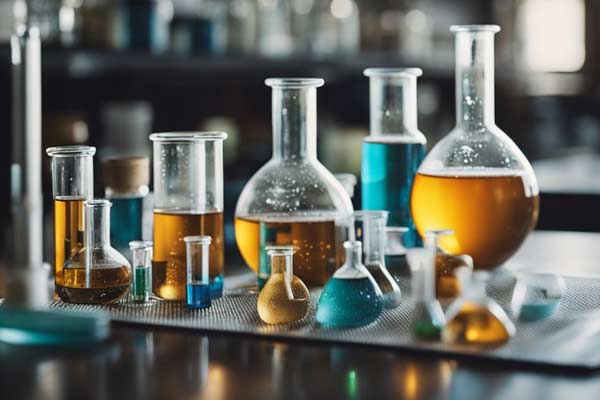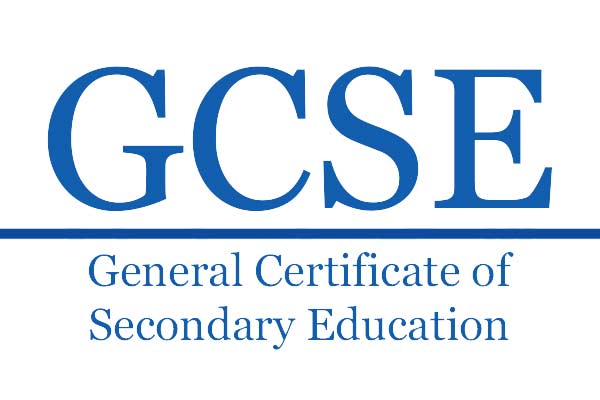Is Chemistry GCSE Hard? A Clear Answer with Expert Insight
Chemistry is a subject that has always been considered difficult by many students. It is often perceived as a complex and challenging subject, requiring a lot of effort and dedication to master. As such, many students ask the question, “Is chemistry GCSE hard?”
The answer to this question is complex. While some students may find chemistry GCSE challenging, others may find it more manageable.
One reason why students may find chemistry GCSE hard is due to the vast amount of content that needs to be covered. The syllabus is extensive, and students need to have a good understanding of each topic to do well in the exam.
In addition to the vast amount of content, chemistry GCSE also requires students to apply their knowledge to unfamiliar contexts. This can be challenging, requiring students to think critically and creatively to solve problems.
Furthermore, the subject is heavily reliant on mathematical concepts, which can be daunting for students who need help with maths.
Understanding GCSE Chemistry
GCSE Chemistry is a subject that covers the study of the composition, behavior, and properties of matter, as well as the elements of the Earth and its atmosphere. It is offered as a single science subject or as part of a double science qualification.
In GCSE Chemistry, students are expected to have a good understanding of scientific knowledge and concepts, as well as the ability to apply them to real-world situations.
This includes knowledge of chemical reactions, chemical formulas, and chemical equations, as well as the ability to conduct experiments and analyze data.
The specific subjects taught in GCSE Chemistry may differ based on the examination board.
However, they usually include atoms, the periodic table, how chemicals stick together, chemical reactions, acids and bases, and organic chemistry. Students also learn about how to work in a lab and stay safe.
While GCSE Chemistry can be challenging, it is essential to note that it is an advantageous subject. This program equips students with a strong grasp of scientific concepts and abilities they can use in various careers and pursue advanced studies.
🌟 Hey Students! 🚀 Ready for the ultimate experience? Join us on Studentsinside.com's Facebook, YouTube, WhatsApp, and LinkedIn. Click now for tips, fun, and success vibes! 🌈✨ #StudentLife #JoinUs
Difficulty Level of GCSE Chemistry
GCSE Chemistry is considered to be a challenging subject by many students. It requires a good understanding of scientific concepts and applying them to real-world situations.
The difficulty level can change based on how skilled a student is in science and how well they’ve prepared.
One reason why GCSE Chemistry is considered difficult is because it requires students to apply their knowledge rather than memorize facts.
This means that students need to have a deep understanding of the subject matter and be able to think critically to solve problems.
Another factor that can make GCSE Chemistry challenging is the content that needs to be covered.
Students must learn about various topics, including atomic structure, chemical reactions, and organic chemistry.
This can be overwhelming for some students, especially if they need help with time management or organization.
Despite the challenges, some students find GCSE Chemistry easier than other subjects. For example, students who have a strong aptitude for science and enjoy learning about chemical reactions may find the subject to be relatively straightforward.
Additionally, students who have a good teacher or access to high-quality resources may find that they are better prepared for the exams.
GCSE Chemistry vs Other Subjects
GCSE Chemistry is considered one of the more challenging GCSE subjects, but how does it compare to other subjects? Here is a brief comparison of GCSE Chemistry with some other popular GCSE subjects:
English Literature: While English Literature requires a lot of reading and analysis, it is generally considered easier than GCSE Chemistry due to its subjective nature and lack of mathematical concepts.
Biology: Biology is also a science subject, but it is usually considered easier than GCSE Chemistry due to its focus on memorization rather than complex mathematical concepts.
Modern Foreign Languages: These subjects require a lot of memorization and practice, but they are generally considered easier than GCSE Chemistry due to their lack of mathematical concepts.
Geography: Geography is a mix of science and social studies. However, it is usually considered easier than GCSE Chemistry because it focuses on memorizing and understanding concepts rather than complex mathematical calculations.
Religious Studies: Religious Studies is a social studies subject, and it is generally considered easier than GCSE Chemistry due to its subjective nature and lack of mathematical concepts.
French/Spanish: These modern foreign languages require a lot of memorization and practice, but they are generally considered easier than GCSE Chemistry due to their lack of mathematical concepts.
History: History is a social studies subject, and it is usually considered easier than GCSE Chemistry due to its focus on memorization and understanding of concepts rather than complex mathematical calculations.
Combined Science: Combined Science is a combination of Biology, Chemistry, and Physics, and it is generally considered easier than GCSE Chemistry due to its broad nature and lack of in-depth focus on each subject.
Drama: Drama is a creative subject, and it is generally considered easier than GCSE Chemistry due to its subjective nature and lack of mathematical concepts.
Maths: Maths is a challenging subject, but it is usually considered easier than GCSE Chemistry due to its lack of complex scientific concepts.
Computer Science: Computer Science is a mix of science and technology, and it is generally considered easier than GCSE Chemistry due to its focus on programming and logic rather than complex mathematical calculations.
Economics: Economics is a social studies subject, and it is generally considered easier than GCSE Chemistry due to its focus on memorization and understanding of concepts rather than complex mathematical calculations.
Film Studies: Film Studies is a social studies subject, and it is generally considered easier than GCSE Chemistry due to its subjective nature and lack of mathematical concepts.
Design and Technology: A creative subject is often perceived as less challenging than GCSE Chemistry. This is because it emphasizes design and hands-on skills rather than intricate scientific principles.
English Language: While English Language requires a lot of writing and analysis, it is generally considered easier than GCSE Chemistry due to
it needs more complex scientific concepts.
Hospitality: Hospitality is a vocational subject, and it is usually considered easier than GCSE Chemistry due to its focus on practical skills rather than complex scientific concepts.
Media Studies: Media Studies is a social studies subject, and it is generally considered easier than GCSE Chemistry due to its focus on analysis and understanding of media rather than complex scientific concepts.
Physical Education: Physical Education is a mix of sports and science, and it is generally considered easier than GCSE Chemistry due to its focus on physical activity rather than complex scientific concepts.
Physics: Physics is a science subject, and it is generally considered equally challenging as GCSE Chemistry due to its focus on complex mathematical calculations and scientific concepts.
Key Topics in GCSE Chemistry
When studying GCSE Chemistry, there are several key topics that students should focus on to understand the subject.
Two of the most important topics are Atomic Structure and Elements and Chemical Equations and Compounds.
Atomic Structure and Elements
Atomic structure is a fundamental concept in Chemistry. It involves understanding the properties of atoms, their subatomic particles, and how they combine to form elements.
Students should be familiar with the periodic table and the different groups of elements, as well as their properties and reactivity.
Elements are the building blocks of matter, and they are defined by the number of protons in their nucleus. Each element has a unique atomic number, determining its position in the periodic table.
Students should be able to identify elements by their symbols and understand their properties, such as melting and boiling points, density, and reactivity.
Chemical Equations and Compounds
Chemical Equations and Compounds are also critical topics in GCSE Chemistry. Chemical equations describe the reactions between different substances, written using symbols and formulas.
Students should understand how to balance chemical equations and predict the products of a reaction.
Compounds are made when two or more elements join together chemically. They have unique properties that are different from the properties of their constituent elements.
Students should be able to identify different compounds, such as acids, bases, and salts, and understand their properties and uses.
Revision Techniques for GCSE Chemistry
When revising for GCSE Chemistry, the most effective revision techniques may vary from student to student. However, some general techniques can help students revise more efficiently and effectively.
One of the most important things to do when revising for GCSE Chemistry is to create a revision plan. This plan should include a schedule of when and what to revise, as well as a list of resources to use. This could include textbooks, revision guides, worksheets, and online resources.
Another effective revision technique is to practice past papers. This will help students to become familiar with the types of questions that come up on the exam and to develop their exam technique.
It is also essential to review the answers to past papers to identify areas where more revision is needed.
Flashcards are another helpful tool for revising GCSE Chemistry. They can be used to memorize key concepts, equations, and definitions.
Students can also create mind maps or diagrams to help them visualize and understand complex topics.
It is also essential to review class notes and to ask for help from teachers or peers if any areas need to be clarified. Working in study groups can be helpful as it allows students to discuss and explain concepts to each other.
Exam Boards for GCSE Chemistry
Several exam boards offer GCSE Chemistry in the UK. Each board has its own unique specifications, syllabus, and assessment methods. Some of the popular exam boards for GCSE Chemistry include AQA, CCEA, and WJEC.
AQA
AQA, one of the biggest exam boards in the UK, includes GCSE Chemistry in its Science Trilogy and Science Synergy courses.
The GCSE Chemistry curriculum by AQA explores subjects like atomic structure, chemical bonding, and organic chemistry. To evaluate students, AQA employs two written papers, each contributing 50% to the final grade.
CCEA
CCEA is the exam board for Northern Ireland, and it offers GCSE Chemistry as part of its Science Double Award and Single Award courses.
CCEA’s GCSE Chemistry syllabus covers topics such as chemical reactions, rates of reaction, acids and bases, and more.
The assessment for CCEA’s GCSE Chemistry includes one written paper, worth 75% of the final grade, and a practical assessment, worth 25% of the final grade.
WJEC
WJEC is an exam board that offers GCSE Chemistry in England and Wales. WJEC’s GCSE Chemistry syllabus covers topics such as chemical calculations, rates of reaction, organic chemistry, and more.
The GCSE Chemistry assessment by WJEC consists of two written papers, each contributing 50% to the final grade.
Conclusion
In conclusion, GCSE Chemistry can be a challenging subject for students due to its heavy reliance on math and complex concepts.
However, with the proper preparation and study habits, students can succeed in this subject.
One of the main challenges of GCSE Chemistry is the use of math in solving problems and understanding concepts. Students must be comfortable with algebra and other math concepts to grasp the subject matter.
Additionally, the new 9-1 curriculum has added more content to the syllabus, making it more challenging to cover everything in depth.
Despite these challenges, many resources are available to help students succeed in GCSE Chemistry. These include textbooks, online resources, and tutoring services.








